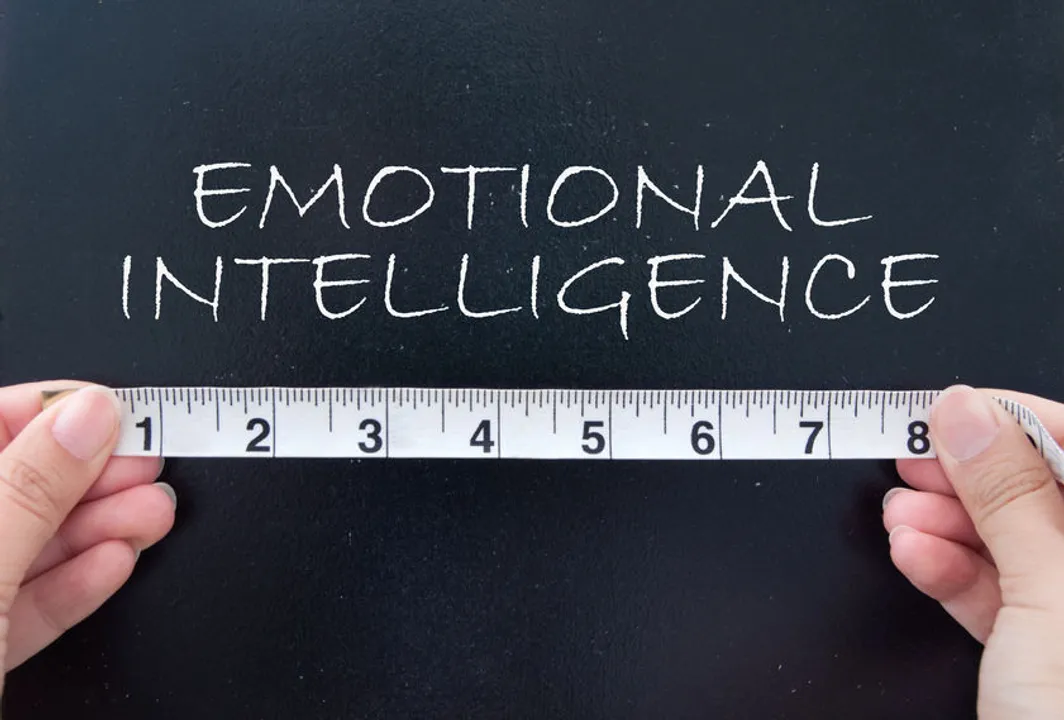Emotional Intelligence and the Physician Leader

pixelbliss/123RF.com
As a physician, you’ve repeatedly proven your intelligence by acing multiple standardized tests and memorizing the minutia of metabolic pathways that could very well save your patient’s life. But, have you put as much effort into your emotional intelligence (EI)?
Since its introduction almost 30 years ago, EI has become recognized as a critical component of leadership and innovation, not only in medicine but also across diverse fields such as business and engineering. Back in 1990, Salovey and Mayer defined EI as the use of emotional awareness to “motivate, plan and achieve in… life." It’s the scientific term for “being in touch with our emotions,” from identifying and understanding personal triggers to controlling and using them to our -- and others’ -- benefit.
For many of us, medical training helped suppress our EI; burying emotions was a self-protective mechanism to get through the long days and nights and the emotionally stressful highs and lows of caring for the ill and dying while building a wealth of medical knowledge and developing procedural skills. As a collective, physicians are starting to realize that this attitude has led to an increase in burnout, fatigue, and even physician suicide.
Importantly, EI protects against physician burnout, improves the patient-physician relationship, and is a vital skill instrumental to physician leadership. So what is EI, and how can physicians develop it? Well, EI,-- like IQ and any complex human trait-- has a few moving parts, so let’s look at each piece more closely:
Self-awareness: awareness of your emotions (and their triggers) and realistically recognizing your strengths and limitations while maintaining a sense of self-worth.
Awareness is critical for every physician-leader. Our profession is ripe with critiques and stressors that can trigger negative emotions if we are not vigilant. What we do with these emotions is vital. Ignoring and suppressing them takes a physical toll on us, overtime draining our deep energy wells that should go towards caring for our patients or healthcare innovation in our communities.
For me, such a trigger came as “constructive feedback” regarding my low speaking voice during grand rounds and community lectures. As I began to recognize the unsettling feeling in my gut that accompanied this feedback, I empowered myself to bring awareness to my emotions so I was not unconsciously distracting from my ability to share knowledge with participants eager to learn.
Self-management: your ability to control emotions, maintaining your integrity and sense of optimism, while putting in the work to achieve your goals.
Physicians are expert at managing labs, physical signs, and clinical knowledge to treat our patients. However, management also encompasses our ability to shape our present situation and work towards future goals. By no means did my diminutive voice need to affect my standing in my local community negatively. Awareness breeds action, and I took this to heart. Rather than falling back on irritation, I used these emotions to develop diaphragmatic breathing (a technique singers use to augment their singing voice). In the interim, I preemptively made a light-hearted joke about my high-pitched voice. Not only did this improve my presentations significantly, I increasingly began to enjoy these speaking engagements, strengthening my standing in the community.
Social-awareness (empathy): genuine interest in and awareness of others’ feelings and needs, whether individually or in a group. Many physicians hope to emulate this “bed-side manner” in their interactions with patients.
Physicians work in a multifaceted world, from consulting specialists to rounds with the ancillary medical staff and engaging with administrators. To be effective, we must function well in these diverse groups - there is no space for isolation in medicine. In the early stages of a career or after a transition, physicians must develop these skills quickly. When taking a job in private practice, I promptly focused on actively listening to the collective team while ensuring that I did not neglect any one person’s voice. Effective listening skills are non-negotiable and ignoring this skill is an effective way to tarnish your reputation in the community. You cannot afford to be known as the physician who is difficult to work with or who overrules everyone. Remember, the medical community is small, and you don’t want a lousy reputation to follow you.
Relationship management: communicating in a clear and effective manner while inspiring growth and initiative in others. Working respectfully with others and energetically resolving conflicts amicably.
Many physicians are expanding their roles, taking up the mantle to use knowledge and skills to implement healthcare technological advances or improve patient access, integrating a career as a clinical-scientist or taking up roles within specialty associations or in the public arena. As such, we work with a wide range of professions and personalities. It is up to us to understand effective ways to take the concerns of patients, administrators, investors, and others seriously while maintaining our authority and understanding as medical experts.
In our new roles, interpersonal conflicts are inevitable, but it is how we approach them - with emotional maturity and awareness that will allow us to rise to the occasion of physician-leader and accomplish our healthcare goals. Relationship management is the cornerstone of EI as it enables us to succeed in our work in a way that is collaborative and enjoyable. In today’s interactive landscape, this is a necessary skill for budding leaders in health care.
All of us can stand to cultivate our EI. Moreover, we can; most psychologists believe that unlike IQ, EI is a fluid and can changes over time. EI training is increasingly more common in medical schools and residency training programs and could even earn you CME credits.
EI is a useful tool to improve your physician leadership skills. How will you use it to further your role in medicine?
Related Posts
